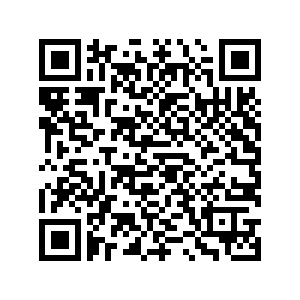KIGALI, Oct. 22 (Xinhua) -- Officials on Tuesday called for greater investment in Africa's digital infrastructure as Rwanda hosts the Mobile World Congress.
The gathering, described by organizers as one of the most influential connectivity events, runs through Thursday, with a focus on fostering cross-border collaboration, investment, and policy dialogue.
Participants, including regional and global leaders, will discuss ways to shape the future of digital transformation across Africa.
Speaking at the opening ceremony in the Rwandan capital, Kigali, International Telecommunication Union Secretary-General Doreen Bogdan-Martin said the largest share of investments must go into infrastructure, alongside substantial funding for capacity development.
"That is why we launched the Digital Infrastructure Investment Initiative. This platform connects data with solutions, builds skills, and mobilizes finance," she said. "Digital skills are key to ensuring young advocates who make up 60 percent of this continent's population can thrive in today's rapidly changing world."
To accelerate Africa's digital leap, Bogdan-Martin said, there is a need to invest in three critical areas: digital infrastructure; devices and services every African can afford; and inclusion, especially through skills development and homegrown digital innovation.
Rwandan President Paul Kagame told the event that Kigali believes strongly in the power of technology to connect people and drive real transformation.
"In just a few years, Africa has gone from limited connectivity to a mobile-driven economy. Now, new technologies are taking us even further ahead. Artificial intelligence, next-generation networks, and smart devices are transforming every field, unlocking endless possibilities," he said.
"In Rwanda, we see this journey as part of our larger vision to build a knowledge-based economy," Kagame said. "We are integrating artificial intelligence into our planning, prioritizing research and human capital development to boost productivity and improve public service delivery."
He stressed that despite the progress made, only a fraction of Africans is connected, compared to the global average.
"If this gap persists, the same technology meant to expand access will instead widen inequality. The future we must build is an Africa that is bold, connected, and competitive," Kagame said.
Vivek Badrinath, director general of the Global System for Mobile Communications Association (GSMA), commended Rwanda for emerging as a technology leader in Africa and for embracing the power of digital transformation to improve citizens' lives.
"Africa's mobile sector is one of the most dynamic in the world, but we must tackle persistent barriers such as high device costs, energy availability issues, and the lack of inclusive AI," Badrinath said. "By working together, governments, industry, and development partners can make digital inclusion affordable, sustainable, and meaningful for every African."
Paula Ingabire, Rwanda's minister of ICT and innovation, highlighted Rwanda's rapid digital transformation journey and reaffirmed the country's commitment to making technology a driver of inclusion, innovation, and growth.
"In 2023, Rwanda had half a million 4G users. Through broadband policies, strategy, and strong public-private partnerships, this number has grown tenfold to 5 million in 2025," she said.
The work ahead is to make Africa not just a market for innovation, but a home of product excellence and digital leadership, Ingabire said. ■
